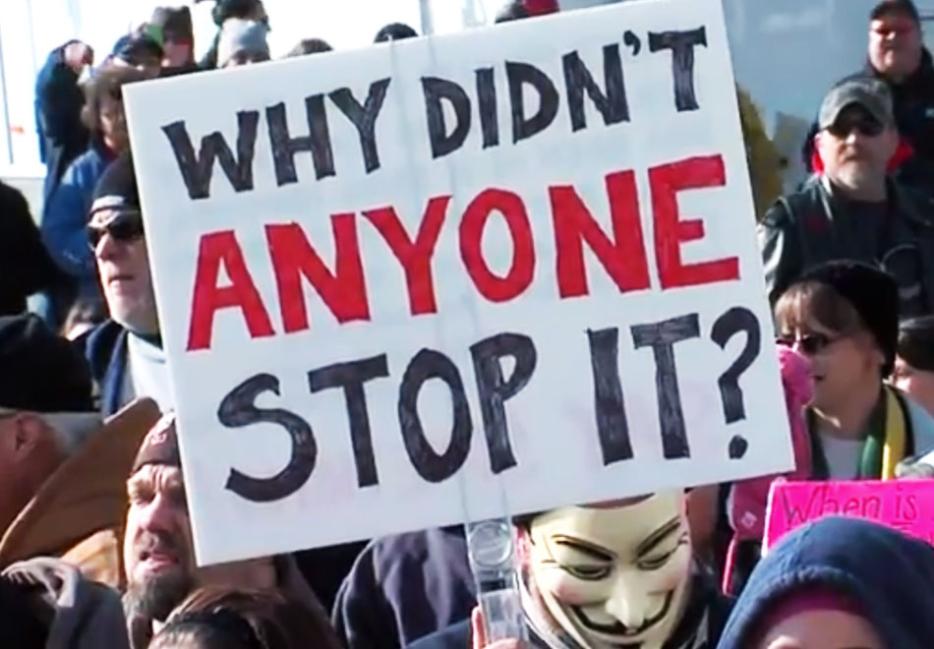The Steubenville Duo were officially found guilty Sunday morning, after months of being tried, exonerated and condemned in the court of social media. It’s been a signal case in many ways, but for those of us not into Friday Night Lights, the main one is the effect of two quite distinct types of digital penetration.
The first—the sort the boys have been convicted of perpetrating on the girl—is defined as rape in Ohio, but more on that later. It’s the other sort that we are now wrapping our minds around, and this case is as good as any in helping us out with that.
Online activity surrounding the crimes had escalated to a level that even a member of the Jefferson County Court managed to notice, prompting Judge Thomas Lipps to place a social media ban on the proceedings. What on earth could Lipps have meant by that? After all, the case, in which two then-16-year-old football players raped a 16-year-old girl, had already been heavily affected by social media. There were tweets, videos, pictures, and even the presence of Anonymous, which got into the act early, leaking the personal records of the town’s residents and organizing protests.
I can only think of two possibilities for Lipps’ decision: First, that he wanted to put a halt to the already florid social media profile the case had cultivated; second, that he may have wanted to protect the sanctity of the courtroom and its proceedings from undue influence or exposure.
But I can’t for the life of me figure out how a social media ban could accomplish either of those things.
Steubenville was a non-jury trial, meaning the ban was not meant to protect jurors’ fragile objectivities, but presumably to shield the young then-accused and accuser. That ship, however, had sailed long before the judge heard the case: The victim apparently didn’t even know the extent of what happened to her until she got her social media updates the next day, complete with pictures and rape jokes. She then faced ghoulish accusations that this was just a case of morning-after-the-orgy blues, suggesting there had, in fact, been no rape at all.
You can see why the judge was a little sensitive. But does Lipps get what social media is? There are press bans on trials regularly, according to which more-or-less regulated and identifiable journalists are told they cannot reveal some or all of the proceedings of a trial while it’s in progress. This can be to protect an identity, or it can be in the service of attempting a fairer trial for someone who may get the dirty end of the media shtick.
But in this way, social media is no different from regular old media. Despite any official attempts at decorum, services like Twitter give us all the power to be little Nancy Graces, indicting people in our fevered imaginations and spewing our nonsense to as many people who have been foolish enough to befriend or follow us. Way back in 1999, Douglas Adams had this to say about the then incipient but now oddly traditional fear of the Internet:
“Newsreaders still feel it is worth a special and rather worrying mention if, for instance, a crime was planned by people 'over the Internet.' They don't bother to mention when criminals use the telephone or the M4, or discuss their dastardly plans 'over a cup of tea,' though each of these was new and controversial in their day.”
It’s true that pictures are only part of the evidence at any trial, no matter how incriminating they look. And just because Cody Saltsman and Michael Nodianos were making rape jokes about the victim in Steubenville ahead of the trial, it didn’t mean any given person was guilty of any given thing. Indeed, according to CNN’s early report on the verdict, investigators examined “tens of thousands of text messages, images and videos and talked to 56 witnesses,” and presented the evidence to the court, which was in a much better position to decide the facts. That’s what trials are for, to hold the accused and accusers to a higher standard than, say, @truthwatcher, who tweeted Sunday afternoon, “If Steubenville victim was so innocent she wld hve been puking all over herself after drinking bottle of vodka – political correctness sucks.”
As you can see on that unfortunate Tumblr link, Twitter is indeed filled with gaping maws of dark matter—just like CNN.
We have, in some ways, reverted back to pre-newspaper days, when there was no possibility of judicial anonymity. Our communities were once too small for gossip and simple eyewitness accounts not to spread whatever nasty news about whatever nasty or thought-to-be-nasty person happened to be on trial. It’s just one more way we’ve all moved into our little global village.
What, then, does this mean for sex-crime trials? How likely will people be to come forward in light of what happened to the Steubenville victim (whose identity has, of course, been revealed, both in the wild, unruly social media, and by the unruly regular media), and given that increasingly no one can believe any promise of identity protection from any level of authority? With any luck, the same machine that’s taking away our privacy and secrecy is also, through its generous spread of explicit sexuality and the attendant decreasing levels of shame associated with sex, will bring sexual assault into the same realm as other physical assaults. Very few of us would be ashamed to admit we had been mugged.
But it’s just as likely that the Steubenville rapists, and others like them, are moved to do what they do by the very same lack of shame, so who’s to say what the ultimate effects of all this digital penetration will be.
Which brings me, as promised, to the discussion of that other definition of the term. It’s a short one: A boy putting his finger inside a girl without her consent is rape, just the same as if he’d put his penis inside her. What, then, do you think one of those boys would have said if his buddy, instead of just watching the attack, had put his finger in his ass? He might have been too ashamed to go to the police, but he would, nonetheless, have felt assaulted—raped, even. And that’s probably all that needs to be said about that.






